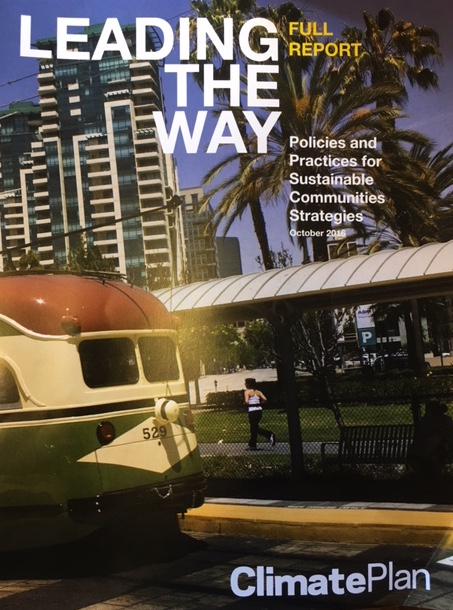Over the next two weeks, the California Air Resources Board (CARB) will hold a series of workshops to get input on updating guidelines for regional Sustainable Communities Strategies (SCS). The first report on how these strategies have performed so far is due to the legislature in the fall, as required by S.B. 150. At the workshops, CARB staff will discuss their preliminary analysis of the data they've received so far.
They will also present proposed changes to the evaluation framework and to some of the technical methods used, including how greenhouse gas emissions are measured.
The SCSs are required by S.B. 375 as part of regional transportation plans. They are a way for regional governments to name and discuss the methods they will use to achieve greenhouse gas reduction targets set by the state.
The idea behind the SCSs was to force regions to evaluate the way they plan transportation, and land use, in the light of climate change. But it isn't clear whether the process of creating an SCS has had an effect on transportation planning—or whether it has helped reduce emissions. Until S.B. 150 there had been no requirement for regions to follow up or report on their progress; all they had to do was name some strategies and show the math on why they think those strategies would work.
Under S.B. 150, they now are supposed to report how greenhouse gas emissions are changing in their regions, whether they are actually applying the strategies set forth in the SCS and how those are affecting emissions, and what challenges the regions are experiencing in meeting the targets.
ClimatePlan did an independent analysis of S.B. 375 programs at the Southern California Association of Governments, but so far that report is the only extensive evaluation of whether all this planning is changing emissions in the state.
So these workshops are key. It's important that the performance evaluations produce clear, consistent, meaningful data that can help the public understand what all these planning efforts are about.
The workshops will be held:
- In San Diego on Monday, June 18 (6 to 8 p.m. at San Diego Continuing Education Cesar Chavez Campus, 1901 Main Street, Room 103).
- In L.A. on Tuesday, June 19 (6 to 8 p.m. at the Southern California Association of Governments, 900 Wilshire Boulevard, Suite 1700).
- In Fresno on Monday, June 25 (6 to 8 p.m. at the University of California Fresno Center, 550 East Shaw Avenue, Inyo/Kern Room).
- In Sacramento on Thursday, June 28 (3 to 5 p.m. at the California Environmental Protection Agency, 1001 I Street, Sierra Hearing Room). This workshop will also be webcast live here.
More information can be found here.






